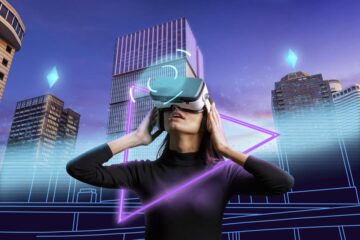Revolutionizing Education: Revealing the Power of AI-Driven Adaptive Learning

The educational landscape is undergoing a transformative shift, propelled by the integration of Artificial Intelligence (AI) into learning strategies. Adaptive learning, learning Spanish with AI tools, tailors educational experiences to individual needs and learning styles, promising significant advantages for both educators and students. Let’s delve into this dynamic approach, exploring how AI empowers both parties to achieve unparalleled educational outcomes.
Educators Empowered: Tailoring Instruction with Precision
For educators, AI-driven adaptive learning offers a paradigm shift in instructional delivery:
- Personalized Learning Paths: Gone are the days of “one-size-fits-all” instruction. AI analyzes student data, identifying strengths, weaknesses, and learning pace to create personalized learning paths. Educators can then curate targeted resources, activities, and assessments, ensuring each student progresses at their optimal pace.
- Real-Time Insights and Feedback: AI provides educators with real-time insights into individual student performance. Data visualization tools and progress reports facilitate early identification of challenges and allow for immediate intervention, maximizing learning potential.
- Automated Tasks and Assessments: AI automates tedious tasks like grading multiple-choice tests and providing basic feedback, freeing up valuable time for educators to focus on personalized guidance and deeper learning activities.
- Differentiated Instruction Made Easy: Adaptive learning platforms enable educators to easily differentiate instruction, customizing content, difficulty levels, and teaching methods to cater to diverse learning styles and needs within a single classroom.
Students Soaring: A Personalized Journey to Mastery
For students, AI-driven adaptive learning fosters a more engaging and effective learning experience:
- Engaging and Interactive Learning: AI algorithms personalize learning content, incorporating interactive elements, multimedia resources, and gamification techniques to match individual preferences and learning styles, boosting motivation and engagement.
- Immediate Feedback and Support: Students receive immediate feedback on their progress, allowing them to self-correct and bridge knowledge gaps before moving forward. AI-powered virtual tutors can provide additional support and explanations, ensuring mastery of concepts.
- Empowering Self-Assessment and Reflection: Adaptive learning platforms promote self-assessment and reflection by providing students with personalized learning reports and progress dashboards. This fosters a sense of ownership over learning and encourages students to become active participants in their educational journey.
- Increased Confidence and Autonomy: By addressing individual learning needs and celebrating individual achievements, AI-driven platforms instill confidence and empower students to take charge of their learning, fostering a culture of self-directed exploration and lifelong learning.
A Symbiotic Partnership: Educators and Students Collaborate with AI
The transformative power of AI-driven adaptive learning lies not in its individual benefits, but in the collaborative synergy it creates between educators and students. Educators wield AI tools to personalize learning experiences, while students actively engage with and benefit from these tailored offerings. This unique partnership fosters a dynamic learning environment where both parties thrive:
- Educators can leverage their expertise to curate high-quality content and learning activities within the AI framework, ensuring its effectiveness and alignment with curriculum goals.
- Students can communicate their needs and preferences to educators, providing valuable feedback that helps refine the AI algorithms and further personalize their learning journeys.
Conclusion: A Brighter Future Fueled by AI
While AI-driven adaptive learning is still evolving, its potential to revolutionize education is undeniable. By empowering educators and students alike, it paves the way for a future where personalized learning experiences lead to deeper understanding, increased engagement, and ultimately, a more equitable and effective educational system for all.
Frequently Asked Questions
1. Does AI-driven adaptive learning replace teachers?
No, AI complements teachers by acting as a powerful tool to support and personalize learning. It empowers educators to focus on their core role: guiding, motivating, and nurturing students’ potential.
2. How can privacy concerns be addressed?
Privacy-by-design principles should be embedded in AI-driven learning platforms to ensure student data is secure and used responsibly. Transparency and clear communication about data usage are crucial.
3. What are the challenges of implementing AI in education?
Cost, teacher training, and potential digital divides are some challenges. Careful planning, investment in professional development, and ensuring equitable access to technology are key to successful implementation.
4. How can I learn more about AI-driven adaptive learning?
Educational institutions, technology companies, and educational publications offer resources and information about this evolving field. Stay informed and explore the possibilities to harness the power of AI for personalized learning experiences.
Leave a reply
You must be logged in to post a comment.








